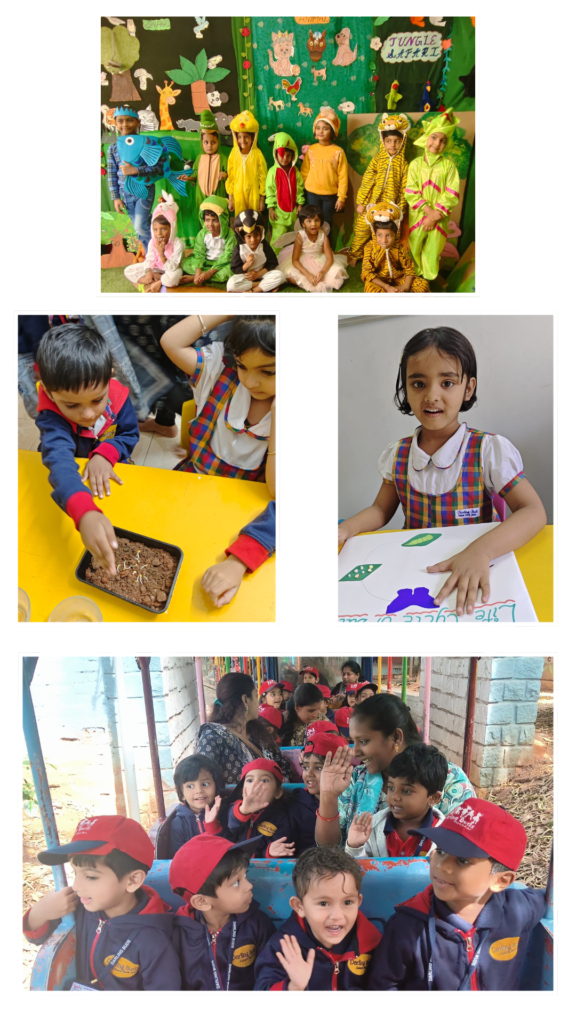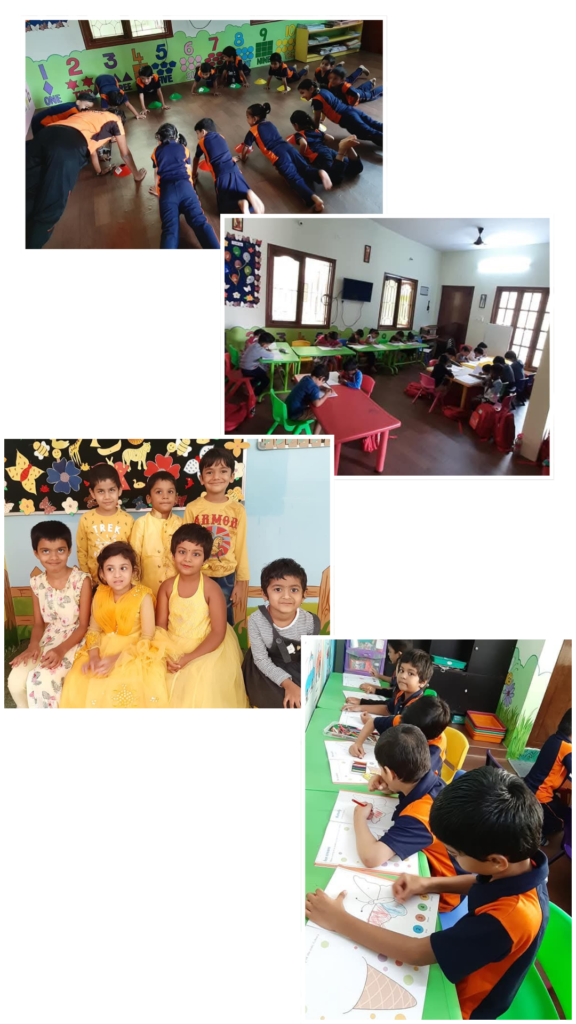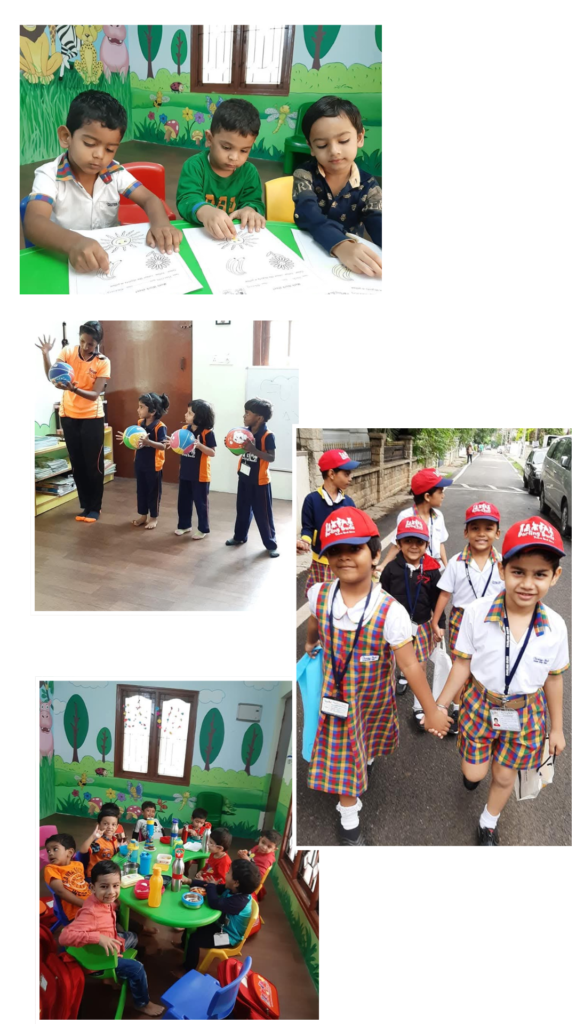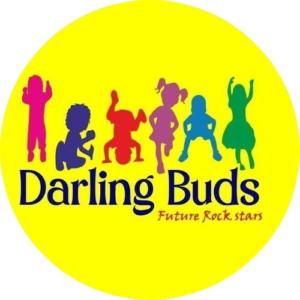Upper Kindergarten (UKG) or Mont 3 (5 to 6 years)
UKG plays a crucial role in every child's learning because it provides a foundational base for future academic development by introducing basic concepts in language, math, and social interaction, while also fostering important skills like communication, socialization, and self-confidence, preparing them for the transition to primary school.
Importance of UKG Program:
• Holistic Development:
UKG focuses on a child's overall growth, including cognitive, social, emotional, and physical skills through engaging activities.
• Early Learning:
It introduces basic concepts like alphabets, numbers, shapes, colors, and simple reading skills in a playful and age-appropriate manner.
• Language Development:
UKG emphasizes vocabulary building, proper grammar, and communication skills through storytelling, rhymes, and conversations.
• Socialization:
Children learn to interact with peers, share, cooperate, and resolve conflicts in a structured group setting.
• Confidence Building:
A supportive environment in UKG encourages children to explore, ask questions, and develop a positive attitude towards learning.
• Preparation for Primary School:
UKG helps children adapt to a classroom setting, follow instructions, and develop essential skills needed for formal education.

Methodology of UKG Program
A UKG class typically uses a "Play way method" as its primary methodology, focusing on hands-on learning through activities, games, and exploration, prioritizing fun and engagement over traditional textbook learning, while still incorporating fundamental concepts across various subjects through an integrated approach to holistic development; this often includes collaborative learning in small groups, utilizing visual aids, and creating a stimulating classroom environment to encourage active participation.
Methods they follow are:
• Play-based learning: The core approach, where children learn through imaginative play, using toys, props, and role-playing to grasp concepts.
• Integrated learning: Connecting different subjects like math, science, and language through thematic units to promote holistic understanding.
• Hands-on activities: Encouraging direct manipulation of materials to solidify learning, like building blocks, puzzles, and art supplies.
• Collaborative learning: Working in small groups to foster cooperation, communication, and problem-solving skills.
• Sensory experiences: Incorporating tactile, visual, and auditory elements to enhance learning through different senses.
• Storytelling and songs: Using engaging narratives and music to teach concepts and vocabulary
• Outdoor play: Utilizing the outdoor environment for physical activity and exploration
• Individualized attention: Addressing each child's unique needs and learning pace
• Positive reinforcement: Providing praise and encouragement to build confidence and motivation.
Important considerations for a UKG classroom:
• Age-appropriate activities: Designing lessons that align with the developmental level of 5-6 year old
• Creating a safe and nurturing environment: Fostering positive interactions and emotional well-being
• Building strong teacher-student relationships: Establishing trust and rapport to facilitate learning
• Regular assessment and feedback: Monitoring progress and providing individualized support

UKG Activities
Activities for UKG students can include arts and crafts, science experiments, music, movement, outdoor exploration, and games.
These activities help with cognitive, social, emotional, language, and physical development.
Arts and crafts
• Coloring, cutting, pasting, and clay modeling can help develop hand-eye coordination
• Teachers can introduce themes related to seasons, festivals, or animals
Science experiments
• Observe plant growth, make aluminium floating boats, evaporate water, and melt ice
• These experiments help children gain basic scientific concepts
Games
• A fun outdoor games that helps develop balance and coordination
Music and movement
• Can be incorporated into the curriculum to foster holistic development
Outdoor exploration
• Involves physical activities such as walking, running, and playing and all kid of Sports, Dance, Meditation, Exercise and Games.
• These activities help improve Motor Skills, Coordination, Discipline, Mental and Physical Growth.
Other activities
• Storytelling, Competition, Elocution, Exhibit all kind of skill.
• Scooping, Digging, Pouring and Sifting
• Simple Speaking, Reading and Writing, Phonics, and Vocabulary
• Related to Maths, English Environmental Science

